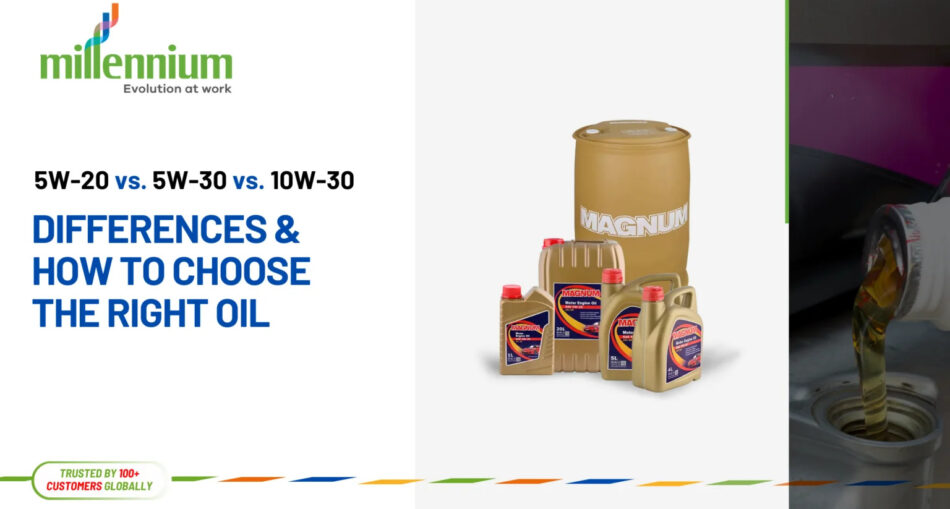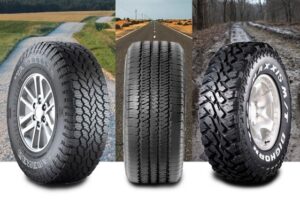When it comes to maintaining your vehicle’s engine health, choosing the right engine oil is crucial. With several oil grades on the market, including 5w 20 vs 5w 30 vs 10w 30, understanding the differences can help you make an informed decision. This guide breaks down what these oil grades mean, how they affect your engine, and how to pick the best one for your vehicle.
Understanding Engine Oil Grades
Engine oil grades are established by the Society of Automotive Engineers (SAE) and refer to the oil’s viscosity—how thick or thin the oil is at various temperatures. These grades ensure that the oil performs well in a range of driving conditions, including cold starts and high-heat operation.
What Do the Numbers and Letters Mean?
Let’s decode an example: 5W-30.
-
The first number (5) refers to the oil’s viscosity at low (winter) temperatures. A lower number means the oil is thinner and flows more easily when cold, which is important for engine startup.
-
The “W” stands for “Winter.”
-
The second number (30) indicates the oil’s viscosity at operating (high) temperatures. A higher number means the oil remains thicker at high temperatures, offering better protection.
So, a 5W-20 oil flows easier than a 5W-30 at operating temperature, but both flow the same in cold conditions.
Why Viscosity Matters for Your Engine
Viscosity affects how easily the oil flows through engine components. If the oil is too thick, it may not circulate properly, especially during cold starts. If it’s too thin, it may not provide sufficient lubrication under high-heat or high-load conditions. The right oil reduces wear, ensures proper lubrication, and enhances fuel economy.
What is 5W-20 Oil?
5W-20 is a low-viscosity oil designed to flow quickly in cold weather and remain relatively thin at operating temperatures. It’s commonly recommended for modern engines that have tighter tolerances and require less resistance during startup.
Key Features:
-
Excellent fuel economy
-
Fast flow during cold starts
-
Suitable for colder climates
-
Lower protection at high temperatures compared to 5W-30 and 10W-30
Ideal for vehicles that prioritize fuel efficiency and have engines designed for thinner oils.
What is 5W-30 Oil?
5W-30 is a versatile motor oil that performs well in both cold and hot weather. It’s slightly thicker than 5W-20 at high temperatures, providing better protection for engine components during intense driving conditions.
Key Features:
-
Balanced fuel economy and protection
-
Performs well in a wide range of temperatures
-
Commonly used in cars, SUVs, and light trucks
-
Suitable for moderate climates
This is often the “middle ground” choice for drivers who want reliable all-season performance.
What is 10W-30 Oil?
10W-30 oil has a slightly higher cold-start viscosity than 5W oils, meaning it flows a bit slower in colder temperatures but provides stronger protection when the engine is running hot.
Key Features:
-
Better high-temperature protection
-
Thicker at startup than 5W-20 or 5W-30
-
Ideal for older engines or heavy-duty use
-
Suitable for warmer climates
It’s often recommended for engines with higher mileage or vehicles that operate under heavy loads.
Comparing 5W-20, 5W-30, and 10W-30
| Feature | 5W-20 | 5W-30 | 10W-30 |
|---|---|---|---|
| Cold Weather Start | Excellent | Excellent | Good |
| High Temp Protection | Moderate | Better | Strongest |
| Fuel Efficiency | Highest | Moderate | Lower |
| Best for | Newer cars, colder climates | All-round use | Older engines, hot climates |
Temperature Range Suitability
-
5W-20 and 5W-30 perform well in colder regions due to low cold-start viscosity.
-
10W-30 is better suited for warm to hot climates where thick oil is needed to maintain protection during high engine temperatures.
If you live in a place with significant seasonal temperature changes, 5W-30 offers a more balanced performance year-round.
Fuel Efficiency Differences
Because 5W-20 is thinner at high temperatures, it causes less friction within the engine, slightly improving fuel economy. 5W-30, being thicker, may lead to a slight drop in MPG but offers better protection. 10W-30 typically has the least fuel efficiency benefit but excels in protecting high-mileage or hard-working engines.
Engine Protection and Wear
Thicker oils like 5W-30 and 10W-30 provide more robust film strength at high temperatures, which helps protect moving parts during high-load or high-speed operation. If your vehicle frequently tows, hauls, or drives in mountainous terrain, you might benefit from a thicker oil. On the other hand, modern engines with tighter tolerances might suffer reduced performance if a too-thick oil is used.
How to Choose the Right Oil for Your Vehicle
-
Check Your Owner’s Manual: Always start with the manufacturer’s recommended oil grade. Using the wrong oil can void warranties and harm engine performance.
-
Consider Your Driving Conditions:
-
Short commutes in cold weather: Go with 5W-20 or 5W-30 for better cold-start protection.
-
Hot climates or towing: 10W-30 provides better protection under stress.
-
Year-round mixed driving: 5W-30 is a solid, versatile choice.
-
-
Account for Engine Age and Mileage:
-
High-mileage or older engines may benefit from 10W-30.
-
Newer engines typically perform better with 5W-20 or 5W-30, depending on design.
-
-
Look for API Certification: Choose oils with the appropriate certifications (e.g., API SP, ILSAC GF-6) for quality assurance.
Conclusion
Choosing between 5W-20, 5W-30, and 10W-30 engine oils comes down to understanding your engine’s needs, the climate you drive in, and your vehicle’s age and workload. While 5W-20 favors fuel economy and cold starts, 10W-30 offers durability under heat and load. 5W-30 strikes a balance, making it a reliable all-season option.
Always consult your vehicle’s manual and consider your driving environment to make the most informed decision. The right oil not only extends engine life but also enhances performance, efficiency, and reliability.







